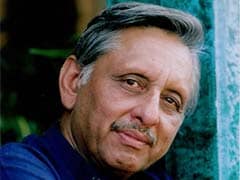- Home/
- Exporting our way to stability: Barack Obama
Exporting our way to stability: Barack Obama
As the United States recovers from this recession, the biggest mistake
we could make would be to rebuild our economy on the same pile of debt
or the paper profits of financial speculation.
We need to rebuild on a
new, stronger foundation for economic growth.
And part of that foundation involves doing what Americans have always done best: discovering, creating and building products that are sold all over the world.
We want to be known not just for what we consume, but for what we
produce.
And the more we export abroad, the more jobs we create in America. In fact, every $1 billion we export supports more than 5,000 jobs at home.
It is for this reason that I set a goal of doubling America's exports in
the next five years. To do that, we need to find new customers in new
markets for American-made goods.
And some of the fastest-growing markets in the world are in Asia, where I'm traveling this week.
It is hard to overstate the importance of Asia to our economic future.
Asia is home to three of the world's five largest economies, as well as a
rapidly expanding middle class with rising incomes.
My trip will
therefore take me to four Asian democracies -- India, Indonesia, South
Korea and Japan -- each of which is an important partner for the United
States.
I will also participate in two summit meetings -- the Group of 20 industrialized nations and Asia-Pacific Economic Cooperation -- that will focus on economic growth.
During my first visit to India, I will be joined by hundreds of American
business leaders and their Indian counterparts to announce concrete
progress toward our export goal -- billions of dollars in contracts that
will support tens of thousands of American jobs.
We will also explore ways to reduce barriers to United States exports and increase access to the Indian market.
Indonesia is a member of the G-20. Next year, it will assume the
chairmanship of the Association of Southeast Asian Nations -- a group
whose members make up a market of more than 600 million people that is
increasingly integrating into a free trade area, and to which the United
States exports $80 billion in goods and services each year.
My
administration has deepened our engagement with ASEAN, and for the first
eight months of 2010, exports of American goods to Indonesia increased
by 47 percent from the same period in 2009.
This is momentum that we will build on as we pursue a new comprehensive partnership between the United States and Indonesia.
In South Korea, President Lee Myung-bak and I will work to complete a
trade pact that could be worth tens of billions of dollars in increased
exports and thousands of jobs for American workers.
Other nations like
Canada and members of the European Union are pursuing trade pacts with
South Korea, and American businesses are losing opportunities to sell
their products in this growing market.
We used to be the top exporter to South Korea; now we are in fourth place and have seen our share of Korea's imports drop in half over the last decade.
But any agreement must come with the right terms. That's why we'll be
looking to resolve outstanding issues on behalf of American exporters --
including American automakers and workers.
If we can, we'll be able to complete an agreement that supports jobs and prosperity in America.
South Korea is also the host of the G-20 economic forum, the
organization that we have made the focal point for international
economic cooperation.
Last year, the nations of the G-20 worked together
to halt the spread of the worst economic crisis since the 1930s.
This
year, our top priority is achieving strong, sustainable and balanced
growth.
This will require cooperation and responsibility from all nations -- those with emerging economies and those with advanced economies; those running a deficit and those running a surplus.
Finally, at the Asia-Pacific Economic Cooperation meeting in Japan, I
will continue seeking new markets in Asia for American exports.
We want
to expand our trade relationships in the region, including through the
Trans-Pacific Partnership, to make sure that we're not ceding markets,
exports and the jobs they support to other nations.
We will also lay the groundwork for hosting the 2011 APEC meeting in Hawaii, the first such gathering on American soil since 1993.
The great challenge of our time is to make sure that America is ready
to compete for the jobs and industries of the future.
It can be
tempting, in times of economic difficulty, to turn inward, away from
trade and commerce with other nations.
But in our interconnected world,
that is not a path to growth, and that is not a path to jobs.
We cannot
be shut out of these markets. Our government, together with American
businesses and workers, must take steps to promote and sell our goods
and services abroad -- particularly in Asia.
That's how we'll create jobs, prosperity and an economy that's built on a stronger foundation.
................................ Advertisement ................................
Opinion
MoreOpinion: China Has Helped India's Cause With TrumpMihir Sharma, Bloomberg
Thursday June 29, 2017Very little was expected in India from Prime Minister Narendra Modi's visit to the U.S., and for good reason: Modi had gone out of his way to cultivate a personal relationship with Barack Obama, including famously pouring out a cup of tea for him and the cameras when Obama visited India.
Opinion: Modi's US Speech Was Letter Perfect, Ticked Off Every BoxAshok Malik
Friday June 10, 2016Without taking recourse to the old wailing sheet and cribbing to everyone about Islamabad, Modi has devised a mechanism to shape the debate to India's advantage.
Opinion: Modi Ignored Advice To Make Obama Squirm. It Has Paid Off.Jyoti Malhotra
Saturday June 04, 2016The visit to the US in the coming week, in fact, brings Obama's relationship with both Modi and India full circle.
Blogs: कादम्बिनी के कीबोर्ड से : क्या परमाणु करार पर पीछे हटे हम?
Sunday February 08, 2015असल में परमाणु रिएक्टरों में हादसे की सूरत में जो हर्जाना होगा, वह रिएक्टर चलाने वाले को यानि ऑपरेटर को देना होगा। कानून में यह प्रावधान है कि अगर ऑपरेटर चाहे तो वह सामान और ईंधन आपूर्ति करने वाले पर हर्जाने के लिए दावा कर सकता है। लेकिन यहां पर समझने वाली बात यह है कि ऑपरेटर कौन होगा।
Opinion: Mani-Talk: Modi is Turning Us into America's New PakistanMani Shankar Aiyar
Thursday February 12, 2015In "Cold War II", battlefield could be India, writes Mani Shankar Aiyar.
Opinion: Obama Had Pointed Message for Modi 2.0Shashi Tharoor
Wednesday January 28, 2015Clear warning that PM will fail if he reverts to Modi 1.0, writes Shashi Tharoor.
Opinion: What Pakistan Makes of Obama-Modi ChemistryMehr Tarar
Tuesday January 27, 2015Acceptance of Modi's goal-oriented leadership, writes Mehr Tarar.









